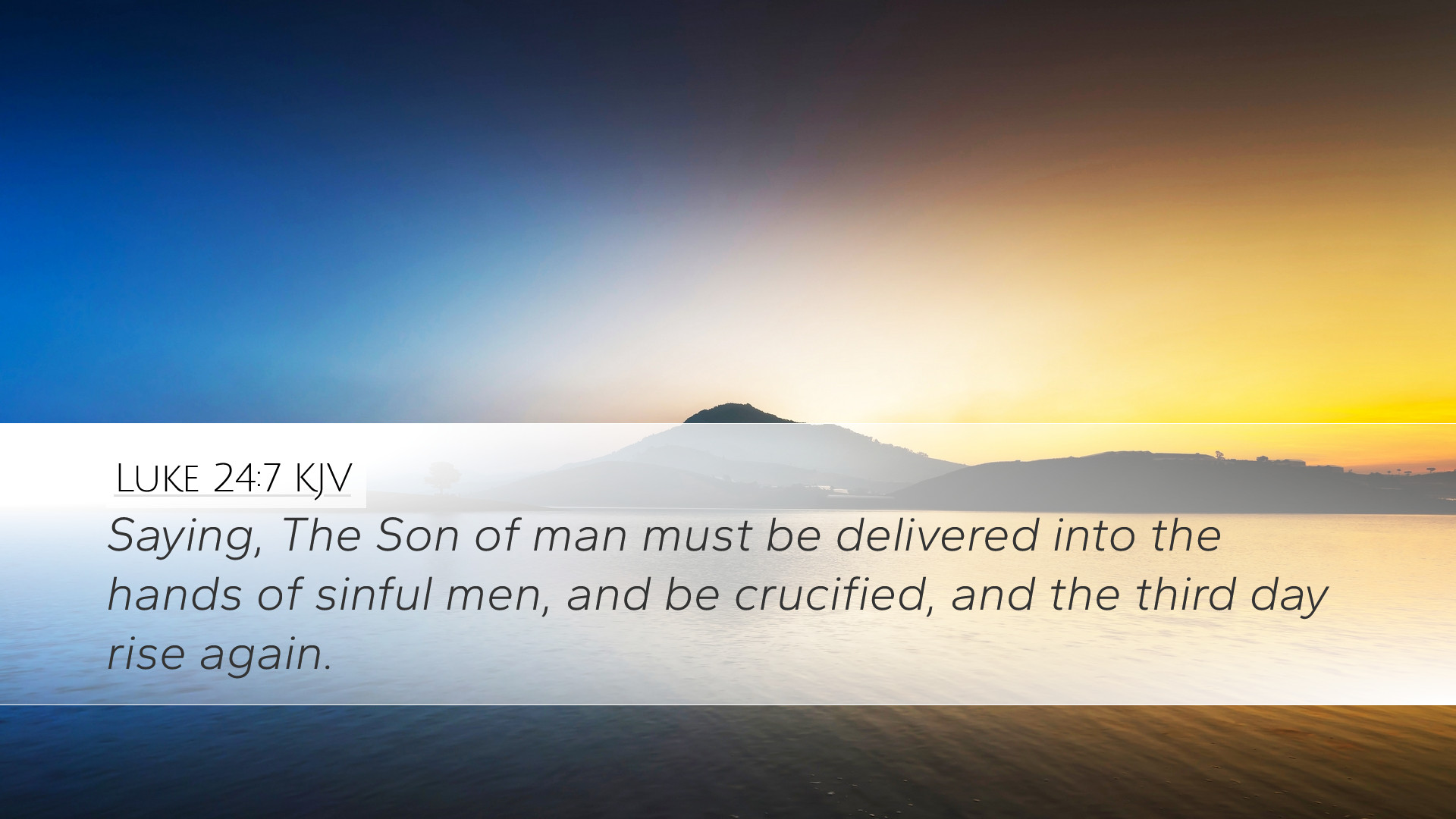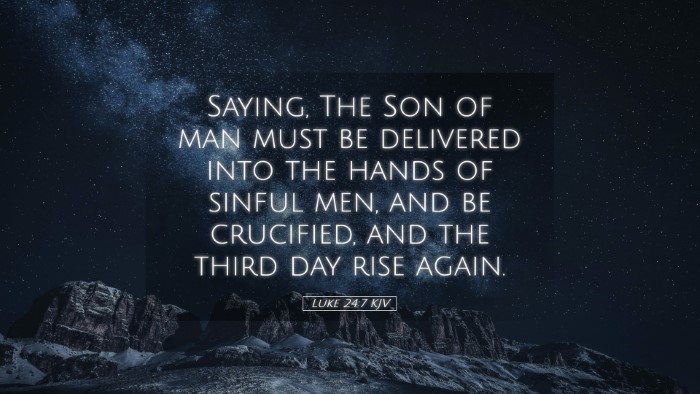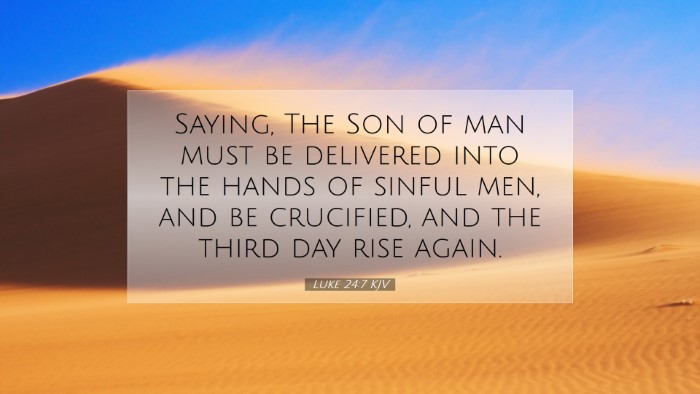Commentary on Luke 24:7
"Saying, The Son of man must be delivered into the hands of sinful men, and be crucified, and the third day rise again."
Introduction
Luke 24:7 encapsulates a profound and pivotal moment in the Christian narrative, where the angels remind the women of Jesus' prophetic words regarding His death and resurrection. This passage not only affirms Christ’s foreknowledge but also highlights the necessity of His sacrificial atonement for humanity's sins. Within this commentary, we will draw insights from public domain commentaries by Matthew Henry, Albert Barnes, and Adam Clarke to provide a holistic understanding of the theological depth this verse carries.
The Necessity of the Cross
Matthew Henry emphasizes that the necessity of Jesus' suffering and death is central to the Gospel. He states that "the Son of man must be delivered" indicates a divine necessity rather than mere inevitability. Jesus voluntarily surrendered Himself to suffering due to the divine plan of salvation, allowing for humanity’s reconciliation with God. This reflects God’s love and justice simultaneously being fulfilled through the cross.
Albert Barnes similarly points out that the term “must” conveys that the crucifixion was a matter of divine decree. Jesus' mission was not just to teach or perform miracles; it was crucial that He endure the crucifixion to fulfill the prophetic scriptures. This underscores the central Christian belief that the cross is both a tragedy and a triumph. The sorrow of His suffering leads to the joy of resurrection.
The Role of Sinful Men
The phrase "delivered into the hands of sinful men" speaks volumes about the nature of humanity and our role in the crucifixion of Christ. Adam Clarke discusses this aspect by highlighting the fact that Jesus was handed over not by a righteous judge, but by sinful authorities driven by envy and malice. This situation illustrates the depth of human depravity, as those in power chose to perpetuate injustice rather than righteousness.
Prophetic Fulfillment
This verse is steeped in the fulfillment of prophecy. Matthew Henry exclaims that the resurrection was foretold in the Scriptures, and Christ’s passion involved a series of events orchestrated by divine providence. Jesus explicitly foretold His death and resurrection during His ministry, thus ensuring that the events that followed were not accidents but integral components of God’s redemptive plan.
The Resurrection: Central to Christian Faith
In the context of this passage, the resurrection is the cornerstone of Christian belief. Albert Barnes elucidates that the mention of "the third day" reinforces the hope that believers have in eternal life. This event is not only foundational to Christianity but also serves as a reassurance that death does not have the final word. It signifies victory over sin and death, providing believers with the hope of their own resurrection.
The Response of the Disciples
The reaction of the disciples upon hearing of the resurrection was initially one of disbelief, as reflected in their behavior throughout the resurrection narrative. Adam Clarke reflects on this by indicating that human skepticism often hinders belief in what God declares. It highlights the struggle of faith, as even those closest to Jesus found it difficult to accept the miraculous event of resurrection.
Theological Implications
The implications of Luke 24:7 for theology are profound. Matthew Henry notes that this passage encourages believers to recognize the significance of Jesus' atoning death and victorious resurrection. It invites scholars and church leaders to affirm the doctrine of justification by faith, as the resurrection substantiates the claims of Christ and the effectiveness of His sacrificial death.
According to Albert Barnes, the resurrection is a demonstration of God’s power and serves to validate Jesus’ identity as the Son of God. For theologians and students of the Word, this verse encourages a deeper exploration of the resurrection and its implications for soteriology and eschatology.
Conclusion
Luke 24:7 is more than a historical account; it is a declaration of hope and truth. The insights provided by Matthew Henry, Albert Barnes, and Adam Clarke resonate throughout the centuries, emphasizing the necessity of Christ’s death and the triumph of His resurrection. For pastors, students, theologians, and scholars, this passage serves as a reminder of the essence of the Gospel message and the transformative power of believing in the risen Christ.
Final Thoughts
In conclusion, as we reflect on Luke 24:7, let us carry forward the message of hope, reminding ourselves and those we lead that through Christ's death and resurrection, we find purpose, redemption, and eternal life. The kingdom of God is at hand, and we are called to proclaim this good news to a world in need of salvation.


